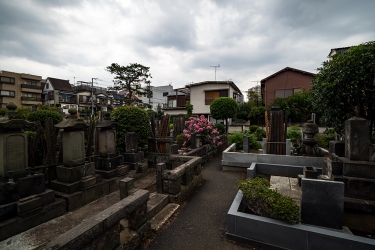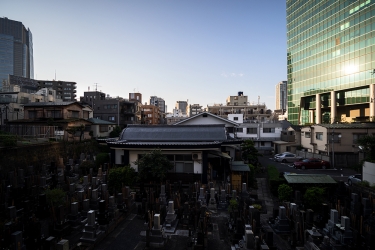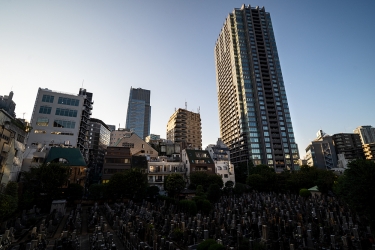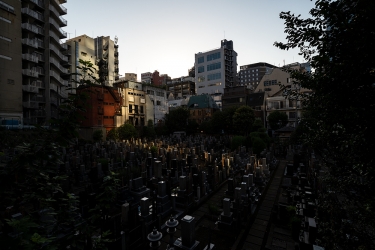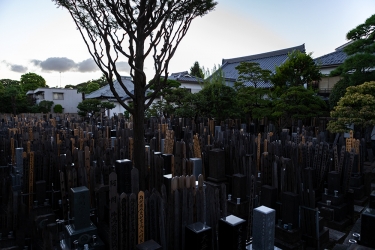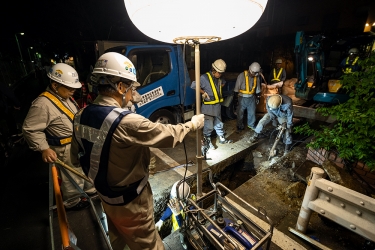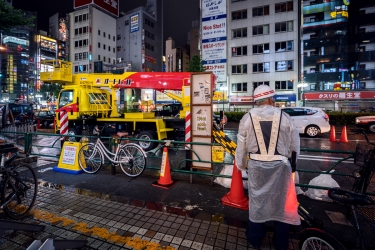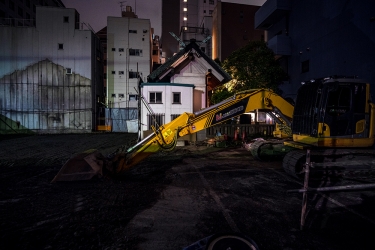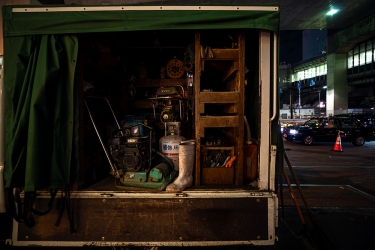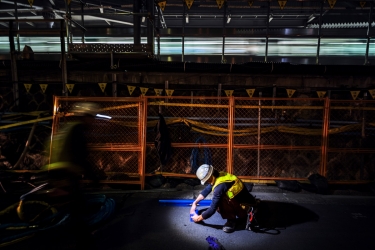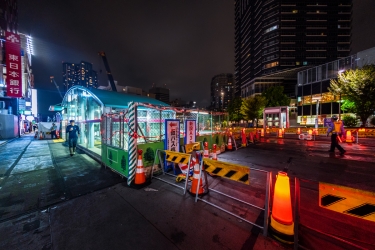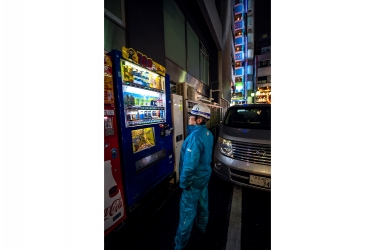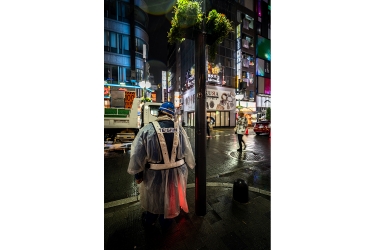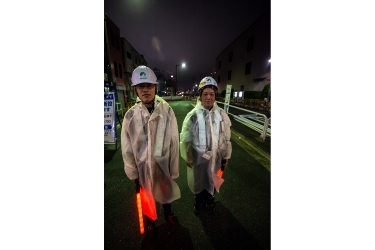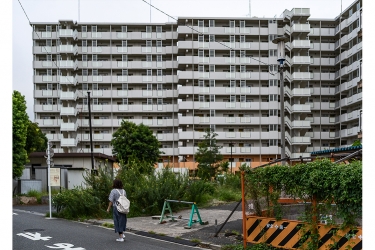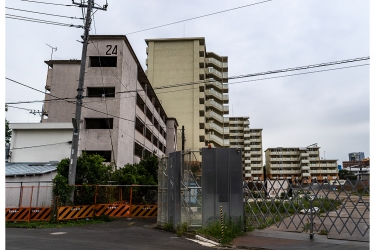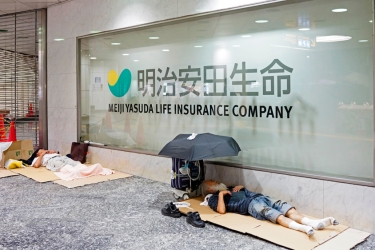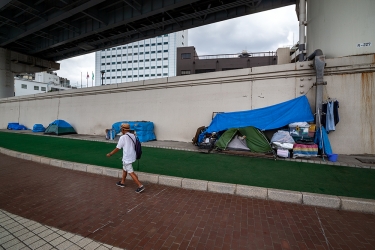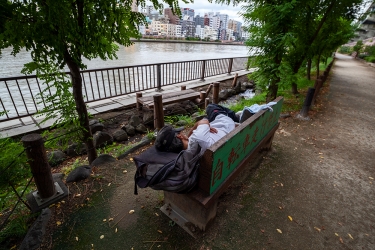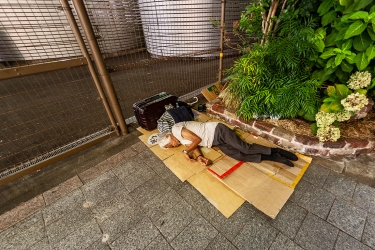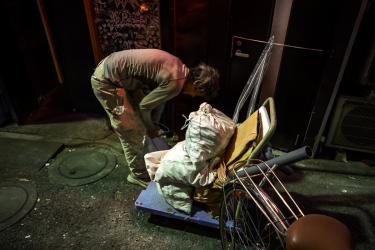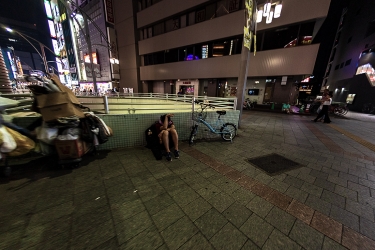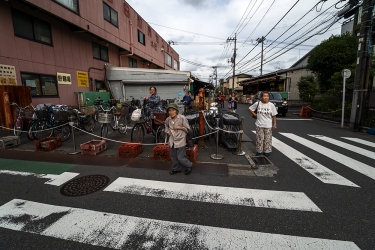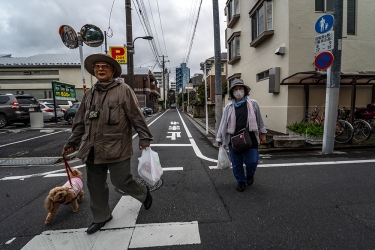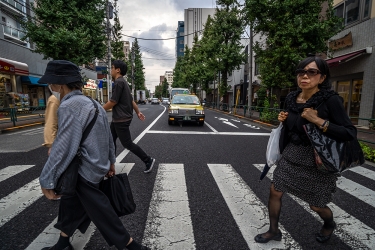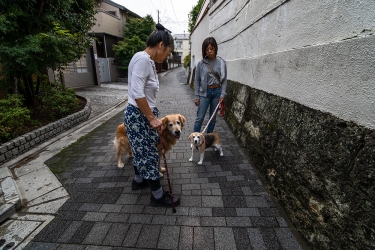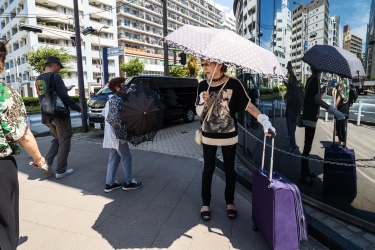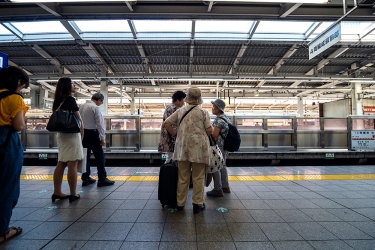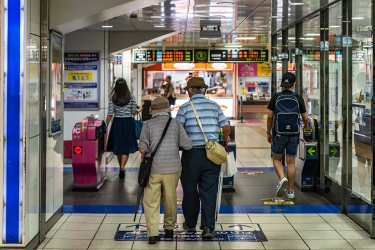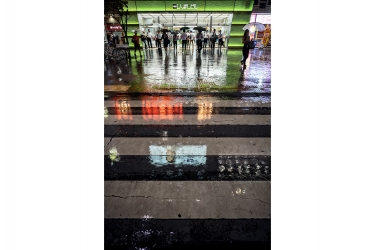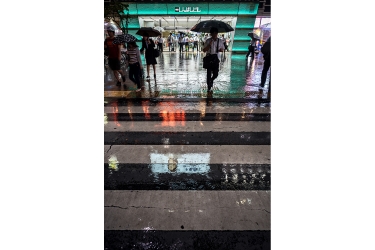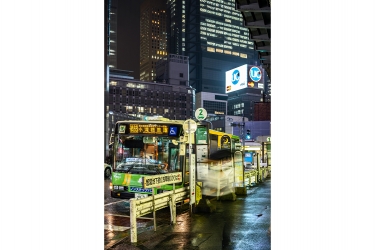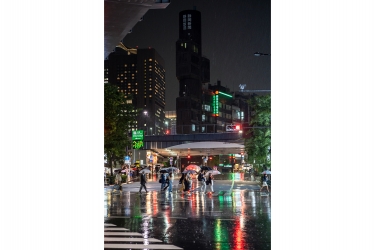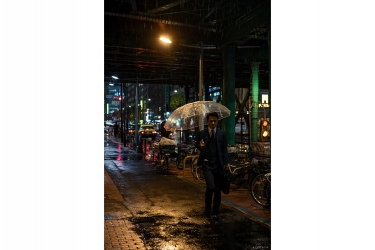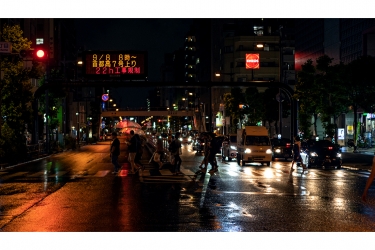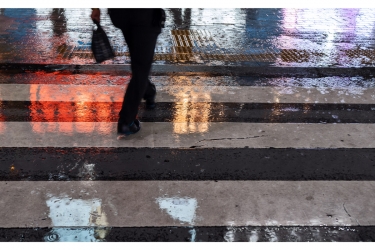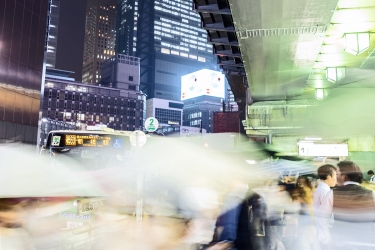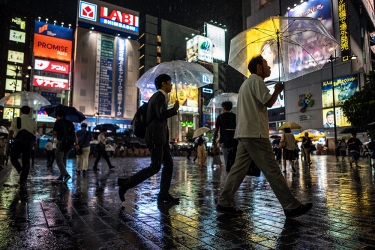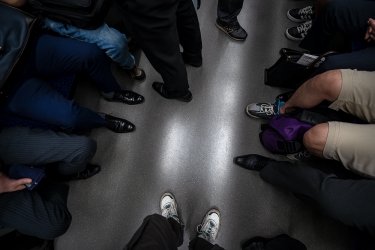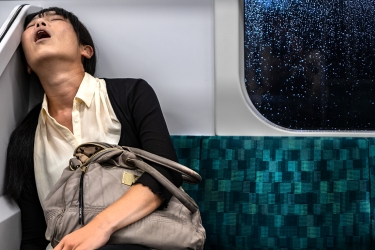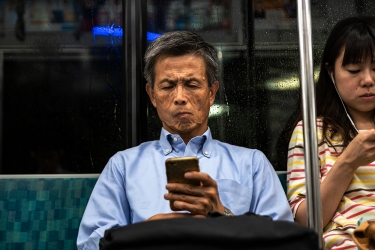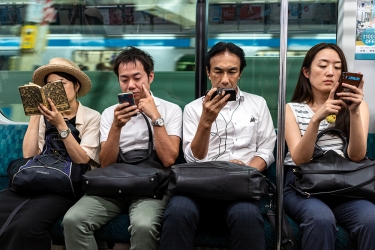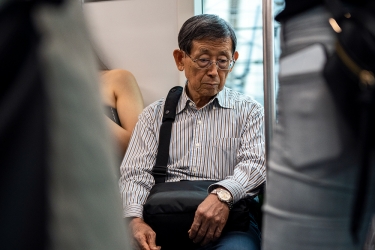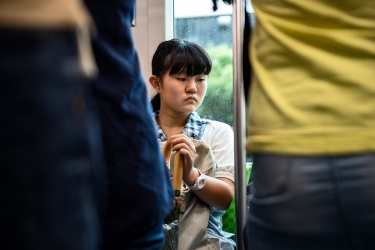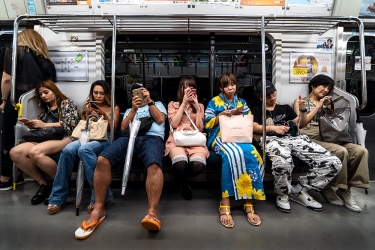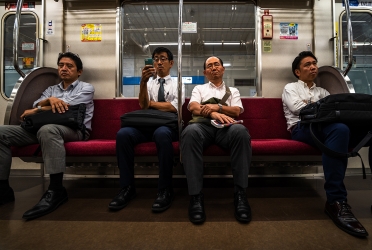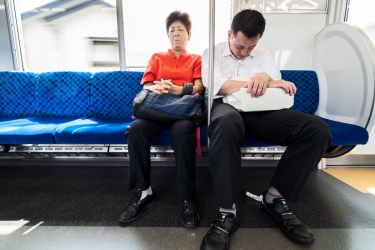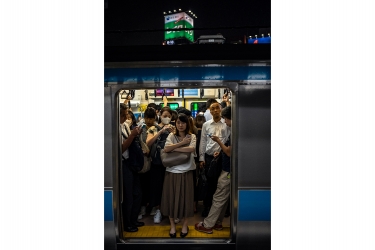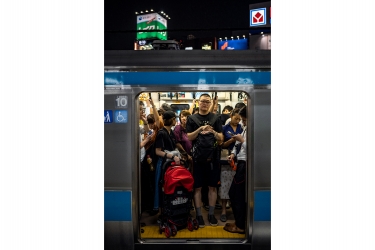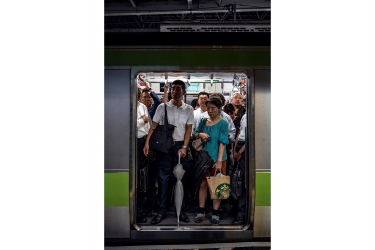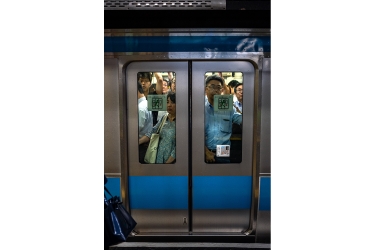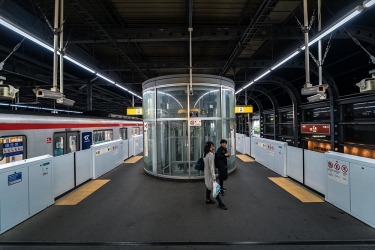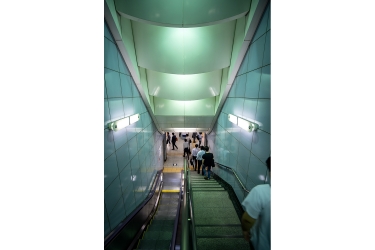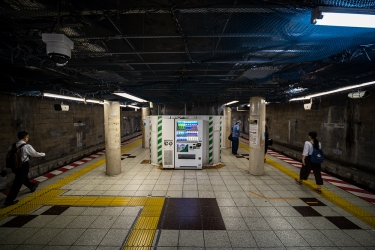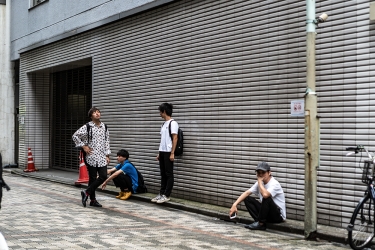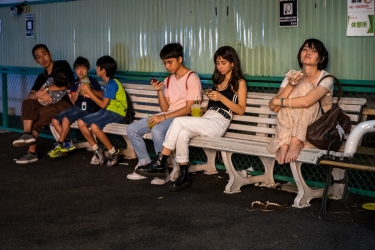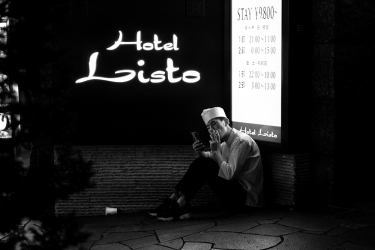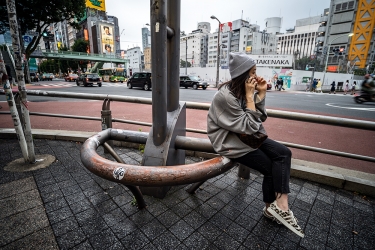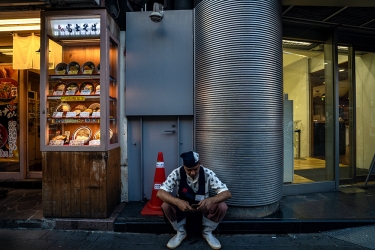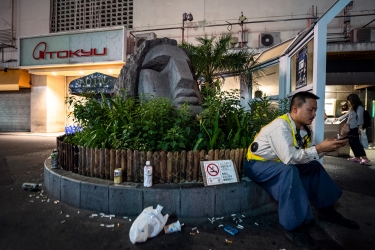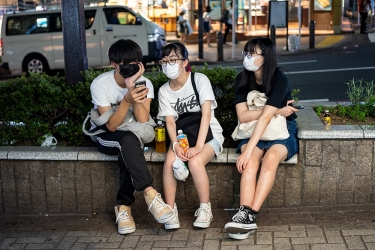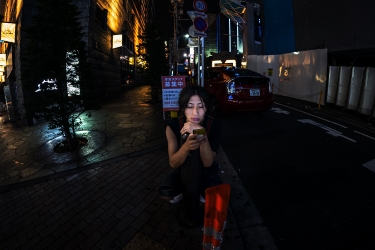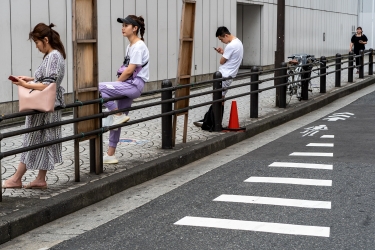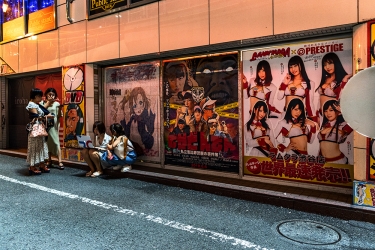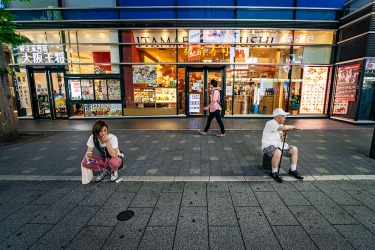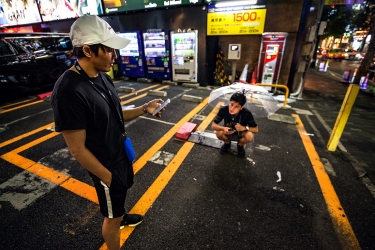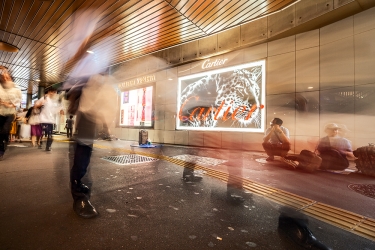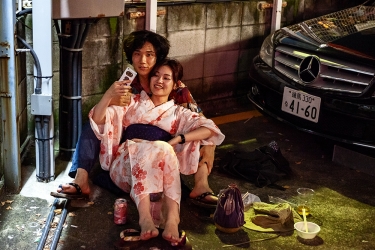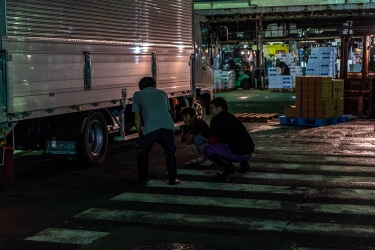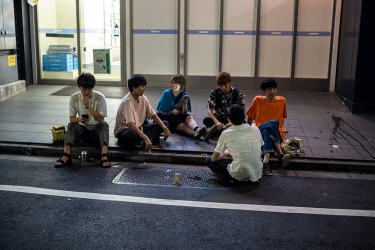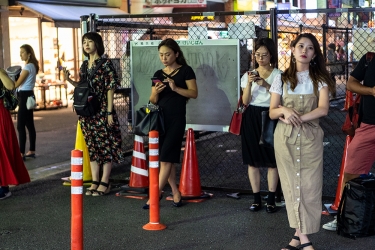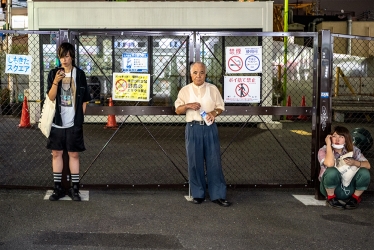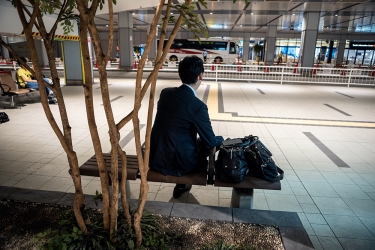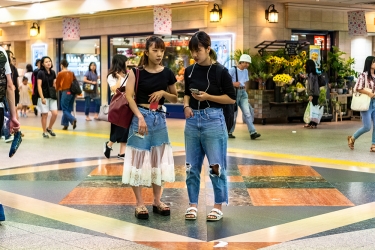4 Tokyo - One of 40 Million
Table of contents:
- 4.1 Cemeteries
- 4.2 Construction Workers
- 4.3 Homeless and Dayworkers
- 4.4 Elderly Morning Ramblers
- 4.5 Going home from work in Ginza
- 4.6 In the train
- 4.7 Waiting for something/sitting for no reason
4.1 Cemeteries
The burial of the death became a struggle in the populous city with such a scarce space. Grave plots are hardly affordable for ordinary people. That's why the city recently got its very first vertical cemetery tower in a modern temple high rise. The sacred temple grounds can be found in old residential districts as well as between modern skyscrapers. The sound of the cicadas is a constant concomitant of these places.
4.2 Construction workers
Sometimes in the middle of the night the holes appear in the center of the street. They are filled with workers and a warm light. Sometimes a lonely man waves a red lightsaber to warn the slight traffic of the construction site. Sometimes there are blinking LED-signs with the depiction of a man waving a red lightsaber.
4.3 Homeless and Dayworkers
Poverty is hidden in Tokyo. From "the European perspective" materialistically most people live very humble: small homes, simple food, personal possessions just enough to fill once own four walls (but then piled beneath the ceiling). Considering a relative and local perspective on "poverty": It took me five weeks to find dilapidated apartment blocks for the first time.
I saw many homeless men in the evenings. At day, they work. They leave their personal belongings neatly packed on rusty trollies on the sides of the streets.
Many internet coffee shops and libraries which are opened 24 h 7 days a week, dwell many hundred young adults at night. For those with no, small or instable income proper housing is often not available due to the relatively high caution fee that is common in Japan's rental market. For them, the libraries have to fulfill their needs. There are a couple more facilities that support particular those without much property. Many public lockers and coin based bathrooms, washing machines and dryers can be found in Tokyo, as well as a solid number of public lockers.
4.4 Elderly Morning Ramblers
Each time that I decided to not take the train and, instead, walked through the residential areas then I found myself to be the only young person amid all those "elderly forenoon-ramblers". Like most students, I usually don't go for walks in the morning. But after this experience I am exited to try this "forenoon-rambling" somewhere else, too.
4.5 Going home from work in Ginza
Karōshi means "death by work". For many people in the West, this is what Japan stands for. Full loyality towards the company, during work and after work. Working days of 12 hours; no breaks; 90 overtimes every month; Sunday is free and relatively low waged compared to the high living expenses in Tokyo. Coming home into a tiny apartment energy for doing something else is rarely available.
4.6 In the train
"Please refrain from talking to the phone" announces a voice in the train. Talking, eating and the sounds of a smartphone are unpleasant for the other passengers. So even during the rush hours, the fully packed trains are quiet: people sleep, read, chat or play games on their smartphones.
Exceptions are the trains on the way and away from Shibuya Station in the evening. Then the young and more western oriented people as well as tourists make up the majority of the passengers.
